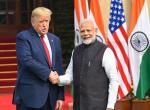Japan’s Prime Minister Shinzo Abe’s government passed a legislation on 19 September 2015 that now enables Japan’s military to mobilize overseas when Japan or its close ally is attacked, threatens Japan’s survival or poses a clear danger to its people.
It also enables Japan to dispatch the Self Defence Force (SDF) abroad to provide logistical support for an allied foreign force, removing the cumbersome necessity of having the Diet (Japan’s Parliament) pass a unique, temporary law for each such operation. Japan’s post World War II (WW II) constitution prevents it from using force to resolve conflicts except in case of self defence.
Though most countries include such laws in their national security policies, the legislation has become very controversial, both in Japan and elsewhere1. For the first time in recent years there has been such a huge public uproar on any such legislation. According to a opinion poll in one of Japan’s leading newspapers, Asahi Shimbun, 54 per cent Japanese people do not support the security bill. As a result, the Abe administration has suffered a precipitous drop in its approval ratings over the last few months, a trend that is likely to continue2.
The Prime Minister has spent considerable energy in passing the new legislation which is an enhanced interpretation of Article 9 of the constitution. Paragraph 1 of article 9 of the Constitution renounces war. Paragraph 2 of the same article prohibits maintenance of the potential for war. Interpretation of this article has varied, broadly, from absolute pacifism to admission of the need for utilization of a collective self-defense right3.
Article 9 states, in part, “aspiring sincerely to an international peace based on justice and order, the Japanese people forever renounce war as a sovereign right of the nation and the threat or use of force as a means of settling international disputes.” The second paragraph continues: “To accomplish the aim of the preceding paragraph, land, sea and air forces, as well as other war potential, will never be maintained. The right of belligerency of the state will not be recognized.”
From the second paragraph one can interpret that Japan is not entitled to even retain its Self Defence Force (SDF). However, the country has been maintaining the SDF as past governments have contended that the Constitution does not deny it the right to self defence. Against this backdrop, the new legislation will enable Japan4:-
(a) Seamless responses to any situations to secure the lives and peaceful livelihood of the Japanese people,
(b) To contribute to the peace and stability of the international community, and
(c) The “Use of Force” is permitted under the “three new conditions”:-
- When an armed attack against Japan occurs or when an armed attack against a foreign country that is in a close relationship with Japan occurs and as a result threatens Japan’s survival and poses a clear danger to fundamentally overturn people’s right to life, liberty and pursuit of happiness.
- When there is no other appropriate means available to repel the attack and ensure Japan’s survival and protects its people.
- Use of force is limited to the minimum extent necessary.
The Abe government has been working on the bill for some years. After formation of a new government in 2012, it revamped its National Security Council (NSC) earlier known as Security Council, followed it up with adopting for the first time a National Security Strategy (NSS) that is aimed at “proactive contribution to peace” and creation of an international environment favorable to Japan. The National Defence Program Guidelines (NDPG) issued thereafter give further details of its plans and stance. A cabinet decision issued in July 2014 under heading “Development of Seamless Security Legislation to Ensure Japan’s Survival and Protect its People” relaxed the interpretation of article 9 to permit limited exercise of the right to collective self defence5.
The ruling Liberal Democratic Party (LDF) believes that the geopolitical environment has transformed momentously after WW II and the world as well as Japanese people have gained immensely from each other’s growth. Japan has expressed its desire to leave the past behind and be seen as a normal country willing to participate in world affairs. It is willing to accommodate the US desire for Japan to contribute effectively to the emerging world order and also stay away from the embarrassment of living under US security umbrella without matching contribution. Japan has understood that if it has to live up to its aspirations of a respected and honored nation of world, it will have to take initiative to look after its security as well and not solely depend upon USA. It firmly believes that to maintain global peace Japan must possess reliable deterrent capability, national will and a mechanism to address chauvinism.
In The Indo-Pacific Ocean too geopolitics is changing rapidly as the world’s economic and strategic balance is shifting from Atlantic-Pacific to Indo-Pacific. During the cold war, threat to Japan came from Soviet Union which took control of Sakhalin Islands after WW II and constrained Japan to post its maximum security forces in the Hokkaido Islands. The threat diminished considerably after disintegration of USSR. The danger then shifted to North Korea with its missile tests in Sea of Japan in response to which Japan deployed warships authorized to intercept missiles threatening it. North Korea is also actively developing its nuclear weapons program. It apparently launched a satellite into space in February this year coming just after the professed hydrogen bomb test in January, triggering international condemnation and prompt UN sanctions. Though North Korea said the launch was for scientific and peaceful purposes, it is viewed by the world as a front to test a ballistic missile.
Japan also faces immediate challenge from China. Their growing economies are leading to rising energy demands and relative conflict of interests. The growing assertiveness of China matching with its economic and military power without sufficient transparency has impacted the regions geopolitics greatest and has contributed immensely towards passing of the security law. In 2013, China announced a one-sided Air Defense Identification Zone which includes the air space covering Senkaku Islands that are controlled by Japan. Enough war of words has taken place since then and their vessels cross each other’s perceived areas of control in the South and East China seas regularly. The fresh round of reclamation by China around several islands in the South China Sea has only vitiated the environment further. The region has maximum maritime disputes among the states causing conflict and in absence of settled boundaries; they are actively strengthening their armed forces.
Though President Xi Jinping stated during the 70th commemorative parade that China will not be a hegemonic power however strong it might become, the countries at the receiving end of China’s coercive strategies would take such pronouncements with a pinch of salt. China sees the legislation as provocative and in a blistering commentary in one of the official publications, has said that Abe has taken Japan back into war mode from post war order. China sees a militaristic Japan capable of harming its interests.
Japan seems to be following a “hedging policy” popular in present contemporary geo political environment with China. “Hedging” symbolizes Japan pursuing engagement with China and concurrently taking steps to compete and defend its interests without stoking conflict. For Japan wisdom lies in creating adequate deterrent capabilities to prevent the possibilities of a hot conflict. The Abe government wants its people to see the new security law in this light.
The Japanese people haven’t forgotten the scars of the WW II and the effects of nuclear attack on its people. People opposing the bill also believe that the legislation could adversely impact Japan’s economic ties with China leading further downhill slide of economy. It will also draw Tokyo into US-led conflicts around the globe. Japan is Washington’s top ally in the enforcement of President Obama’s ‘Asia Rebalance’, a doctrine that China considers is aimed at it. The opponents also believe that the security legislation is unconstitutional and it can be made legal only by amending the constitution and not through reinterpretation of article 9. The degree of spontaneous involvement of university students and young people in the anti security bill protests is a matter of concern in Japan. These people are neither affiliated to a political party nor any organization. Such vast gatherings led by social media have not been seen in Japan since early 1970s6.
The enactment of security law may be seen by India as a positive sign giving Japan capability to balance the regional security order. India and Japan share many common interests in the Indo Pacific but the relationship has not progressed according to its potential. The governments of Mr Abe and Mr Modi have identified areas of greater cooperation between the two nations. Both Prime Ministers noting the developments in the China Seas have also called upon all States to avoid unilateral actions that could lead to tensions in the region, supported effective implementation of the 2002 Declaration on the Conduct of Parties in the South China Sea and early conclusion of the negotiations to establish a Code of Conduct in the South China Sea by consensus and have decided to hold regular close consultations on the issues related to maritime safety and security of sea lanes of communication7.
A strong Japan is in harmony with the Indian security perspective. The passing of security bill has revised the ground rules for military engagements and gives Japan more flexibility to operate effectively in the Indo-Pacific region in close partnership with USA and allies. It should be seen as a development helpful for collective global security and peace. However the Abe government will have to spent time, resources and energy substantially to gain its people’s confidence and approval first.
Endnotes:
- Masahiro Akiyama, President and Senior Fellow, Tokyo Foundation, Japan Perspective, December 2015.
- The Diplomat 04 October 2015.
- Library of Congress, USA
- /www.mofa.go.jp/policy/political_and_security.html
- Katsuyuki Yakushiji, Abe’s Hollow Victory?; Japan Perspective Dec 2015
- ibid
- Joint Statement on India and Japan Vision 2025: Special Strategic and Global Partnership Working Together for Peace and Prosperity of the Indo-Pacific Region and the World (December 12, 2015)
Published Date: 13th March 2016, Image Source: http://www.time.com
(Disclaimer: The views and opinions expressed in this article are those of the author and do not necessarily reflect the official policy or position of the Vivekananda International Foundation)









Post new comment